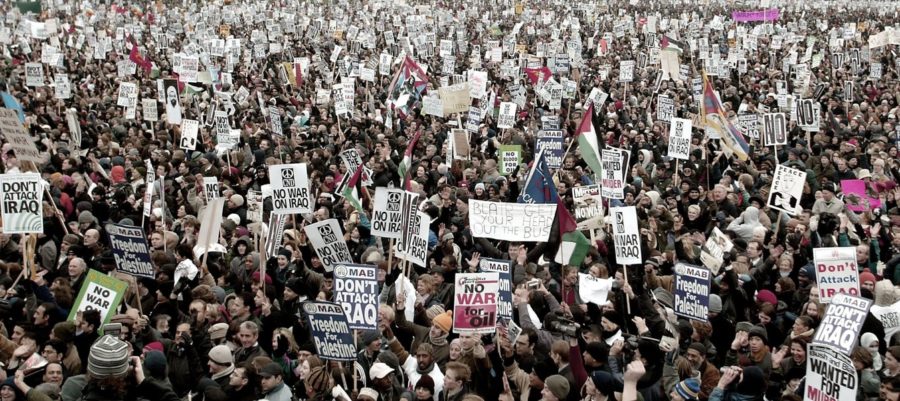Why we should care about Britain’s future
We were now on a path towards war.
Iraq held major stockpiles of chemical and biological weapons. An attack on Britain was now imminent and could be launched in 45 minutes.
In reality, Iraq was economically bankrupt. It’s military had been significantly degraded since the last war. The regime’s defectors already explained that its chemical and biological weapons had either been destroyed or were now inoperable.
We had been lied to and yet we were locked in. Prime Minister Tony Blair held firm on his position that Iraq posed a threat. He ensured that nothing would come between Britain’s “special” relationship with the US. This would endure despite the wish of the electorate, both in war and peace.
I was 20 years old and I was angry. I felt betrayed.
Prime Minister Tony Blair told us that “things can only get better” when he came into power. Yet I was in debt. I was now paying tuition fees and I could barely feed myself or pay my rent.
On a cold bleak winter’s day on 15 February 2003, I caught a coach outside the University of Bath and went to London.
I walked through the streets of the city where I grew up, along with three million people. It was the largest peace protest in the nation’s history.
That day I exercised my democratic right for the first time in my young life.

Fast-forward to the present and young voters did the same in the recent general election. Previously famed for not turning up on polling day, they came out in force.
The reason for doing so is not difficult to understand. If you’re young and have recently graduated, nowadays the barriers to your success are immense.
Today, they are likely to spend years paying off student loans that their parents never had to endure. Once finished, they’ll need to scrimp and save towards a hefty 25 per cent deposit on a home. Plus, they’ll have to take out a huge mortgage in an extortionately expensive housing market.
Added to this, Britain is now set to leave the European Union. This could have unknown economic consequences on them in the decades that follow. The split in votes in the recent general election between young and old was therefore quite understandable.
Younger voters overwhelmingly backed a softer Brexit, an end to austerity and Labour. Older voters backed a harder Brexit, fiscal discipline and the Conservative Party.

Unlike the youth of today, older voters enjoyed free further education. They were probably debt-free when they bought their first home in a housing market far less inflated than today. Many went on to comfortably pay off their mortgages and acquired even more wealth. Their asset wealth compounded over time and then exploded thanks to rising debt, inflating asset prices further.
It’s ironic, because in the UK, the newspapers and politicians vilify the super-rich – the 1 per cent who have maintained their ludicrous lifestyles in present-day austerity-Britain. But truth be told, the economic clout really lies with the older electorate. It is they would control the wealth of Britain and to an extent, the path it takes.

This division in wealth has led to very different perceptions of the world by the young and old.
Younger voters worry about their future. They may never own a home. Their children might not be able to afford university. They may even never be able to retire because the pension system today is woefully inadequate.
Older voters look more towards the past. They have witnessed the gradual decline of Britain’s position in the world from a former superpower. The idea of “splendid” isolation from a potential federalist agenda in the EU in their view will protect British sovereignty and prosperity.
This split first occurred during the start of austerity, and then fully ruptured during the 2016 Brexit referendum.


To the outside world, perhaps Britain’s division don’t matter. European politicians were quick to shrug off Britain’s proposed departure and actively encouraged her to hurry up.
For them, Britain’s fallout has been contained. The European Union will endure and become stronger and more united than ever, ensuring peace and prosperity for all. The deep divisions in Britain are it’s own problem now.

However, perhaps the world should stop and think.
Britain is a veto-wielding member of the UN Security Council.
It’s also a well-armed nuclear weapons state with a very capable military. Plus, it’s an important contributor to NATO at a time when Russia has increased it military activity on Europe’s doorstep.
Furthermore, it remains a powerful and extremely dynamic G7 economy, whose path matters hugely to investors, trading partners and allies. Its capital city, London, remains a global financial centre and provides vital financial infrastructure and services for the whole of Europe.
So who cares about Britain’s future?
I think we all should.









